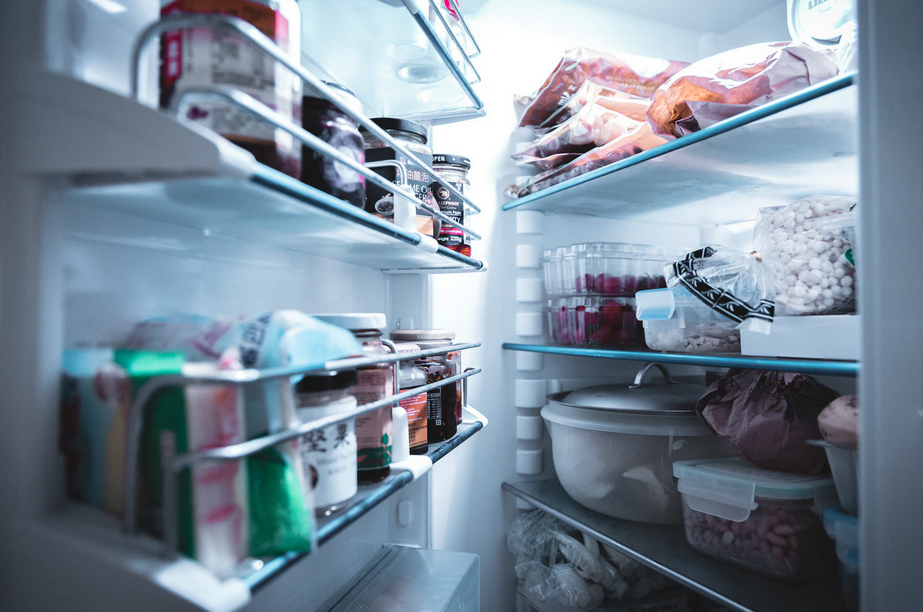
Stock your refrigerator with a variety of perishable staples. These foods will need to be replenished more often than foods in your pantry. Buying them regularly will allow you to make last-minute changes to your meal plans without having to return to the store.
Essential Items to Have on Hand
- Butter
- Cheese
- Cottage cheese
- Cream
- Eggs
- Fresh herbs (basil, mint, rosemary, thyme, sage)
- Milk
- Sour cream
- Staple fruits and vegetables (carrots, lettuce, apples, bananas, oranges, lemons, limes)
- Yogurt
Shelf Life and Storing Refrigerated Foods
A food’s shelf life is the amount of time it can be stored before it goes bad. You can extend the shelf life of the food you keep in your refrigerator in two ways:
- Pay attention to “sell-by” and “use-by” dates: Many foods have a date marked on their packaging that represents the latest date at which you should buy the food or the date at which it’s likely to go bad. Always examine packages for these dates and buy food that has dates as far from the day you’re shopping as possible. In general, the food at the back of a shelf or rack will have more distant sell-by and use-by (also called expiration) dates because markets tend to put the newest products in the back as part of an attempt to get the older products out the door before they go bad.
- Store food correctly: How you store food in the refrigerator affects how long it keeps.
How to Store Food in the Refrigerator
The following list provides the shelf lives of basic foods, and includes guidelines on how to store foods to extend their shelf lives for as long as possible.
- Eggs: Generally, eggs will last for 2–3 weeks. They should be kept in their original carton so they don’t absorb odors from other items in the refrigerator.
- Milk: Whole, low-fat, and soy milk will keep for about a week past the listed sell-by date, while skim milk’s shelf life is shorter by a few days. Sterilized, vacuum-packed milk can be kept unrefrigerated for several months, but once opened, its shelf life is the same as that for other milks. Store milk in its original carton with the cap or mouth closed securely.
- Cheese: The shelf life of cheeses can range from a few weeks to several months, depending on the variety of cheese. Ask your grocer for the shelf life of the specific varieties you’re considering, or check for an expiration date on packaged cheese. Cheese can be wrapped in foil, plastic wrap, or parchment paper. Don’t be alarmed if you see a few spots of mold on hard cheeses. Simply trim them off with a knife; the rest is safe to eat.
- Butter: Butter will keep for 2–3 weeks in the refrigerator. Once opened, store it in a covered dish to prevent it from picking up odors from other foods.
- Sour cream and cottage cheese: Both should be stored in their original containers and will keep for 1–2 weeks or until the expiration date.
- Fruits and vegetables: The refrigerator shelf life of produce varies dramatically, depending on its freshness at the time of purchase and on how you store it. Produce should be kept as dry as possible in an uncrowded crisper (a drawer at the bottom of most refrigerators) and should be eaten within a week of purchase. Fresh herbs should be kept in sealed plastic bags and generally last 1–2 weeks.

